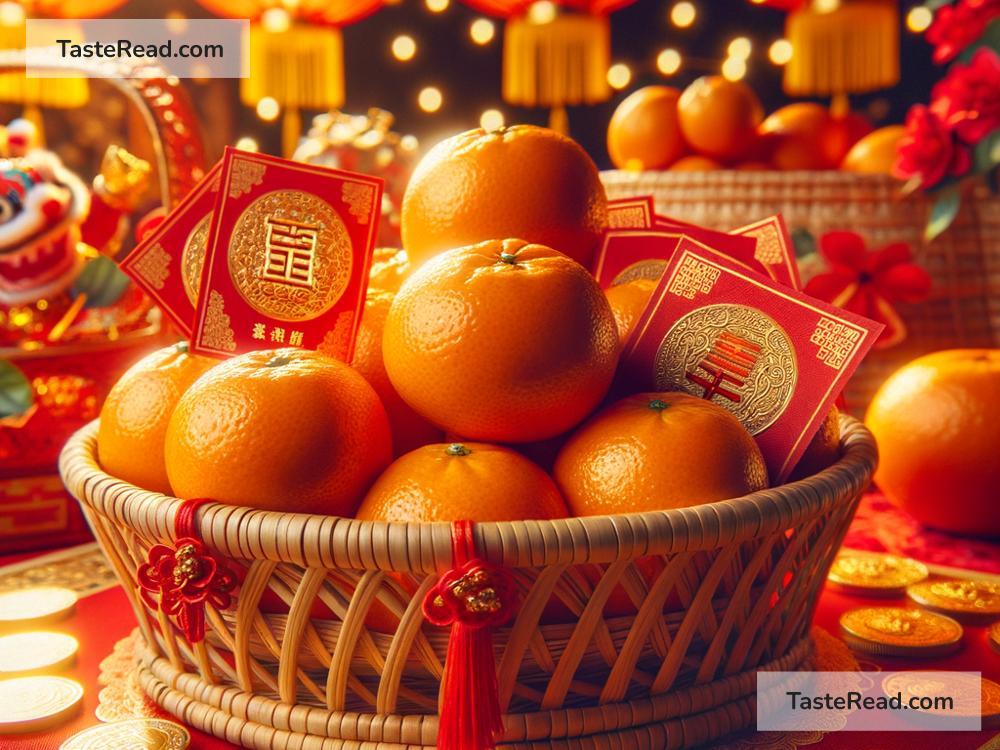How Oranges Became Symbols of Good Fortune
You might have noticed oranges being exchanged during cultural celebrations or displayed as decorations. In many cultures, especially within Chinese traditions, oranges are more than just delicious fruits; they are symbols of good fortune, wealth, and happiness. But have you ever wondered why oranges carry such special meaning? Let’s explore the fascinating story of how oranges became symbols of good luck.
What’s So Special About Oranges?
Oranges are loved around the world for their sweet taste and refreshing flavor. They are also packed with nutrients, like vitamin C, making them great for your health. But there’s more to oranges than just being tasty and healthy—they have deep cultural significance in certain parts of the world, especially Asia.
In Chinese culture, oranges are seen as lucky fruits because of their bright color and round shape, which are associated with prosperity and happiness. But the symbolic importance of oranges goes beyond their appearance. It also comes from language and history.
The Power of Language
One of the key reasons oranges are considered lucky in Chinese culture is the way their name sounds. In Mandarin, the word for “orange” (橙, chéng) has a similar pronunciation to the word for “success” and “good fortune” (成, chéng). This connection in language makes oranges a natural choice when wishing someone well or celebrating special occasions.
In Southern Chinese dialects, such as Cantonese, the word for orange (kam) sounds similar to the word for “gold.” Because of this, gifting oranges is often seen as a way to wish wealth and prosperity upon someone. In Chinese culture, wordplay is incredibly significant, and oranges have become a favorite symbol thanks to their auspicious-sounding names.
Connection to Lunar New Year
Oranges play a starring role during Lunar New Year, one of the most important holidays in many Asian countries. During this time, people exchange oranges to wish each other good luck and success for the year ahead.
Often, oranges are paired with red envelopes containing money, known as hongbao in Mandarin. The combination of red envelopes and oranges symbolizes both financial prosperity and positive energy. Red is a lucky color in Chinese culture, and when paired with the bright golden-orange hue of the fruit, it creates an even stronger symbol of good fortune.
In traditional customs, families also place oranges on altars or around their homes as offerings to spirits and ancestors. This practice is meant to honor loved ones while attracting blessings for the household.
A Global Spread of Symbolism
While oranges are especially significant in Chinese culture, their symbolism has spread around the world. Many countries have traditions that incorporate oranges as symbols of happiness or prosperity. For example, in Italy, oranges are associated with Christmas and are often used as decorations during the holiday season. The fruit’s vibrant color adds warmth and cheer during cold winter months.
In other parts of Europe, oranges were once considered luxury goods because they were rare and expensive. Only wealthy families could afford to enjoy them, which gave oranges a reputation as symbols of wealth and status. Today, oranges are accessible to everyone, but they continue to carry a sense of abundance.
Practical Reasons for Their Popularity
Apart from their cultural and linguistic significance, oranges also became symbols of good fortune for practical reasons. Oranges grow in abundance in tropical and subtropical regions, such as Southern China, where the climate is ideal for citrus farming. Historically, having a good harvest of oranges meant that farmers could enjoy economic stability and prosperity. As a result, oranges became linked to wealth and success.
Additionally, oranges have a long shelf life compared to many other fruits. This trait made them perfect for gifting during holidays. A basket of oranges could stay fresh for weeks, allowing people to enjoy the fruit’s flavor and symbolism long after a celebration.
Modern-Day Meaning
Today, the tradition of gifting oranges continues in many cultures. In Chinese households, receiving or giving oranges during Lunar New Year remains popular. Even outside of Asia, people recognize oranges as symbols of positivity and abundance. Over time, the fruit’s meaning and cultural significance have transcended borders, becoming a universal symbol of joy and prosperity.
In addition to physical oranges, you might notice decorative items, like orange-shaped ornaments, being sold around holidays. These items keep the lucky symbolism alive in modern celebrations.
A Fruit of Fortune
From their bright color to their auspicious name, oranges have gained a permanent place in cultural traditions as symbols of good fortune. They remind us of success, happiness, and prosperity, making them perfect for meaningful celebrations. Whether you’re receiving oranges during Lunar New Year, enjoying them as a healthy snack, or admiring their symbolic meaning, oranges are more than just fruits—they represent the blessings of life.
Next time you peel an orange, think about its history and cultural significance. Who knew that such a simple fruit could carry so much meaning? It’s amazing how oranges have traveled through time and traditions, spreading goodwill and positivity wherever they go.
Oranges truly are a sweet and lucky treat, both for the body and the soul!


